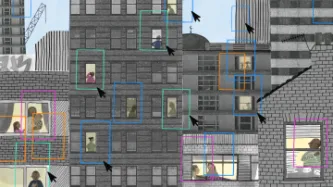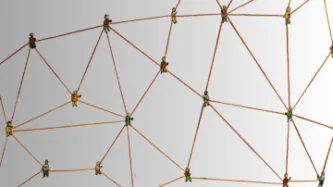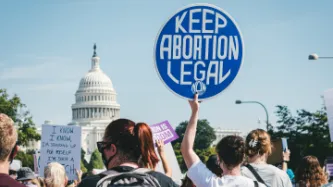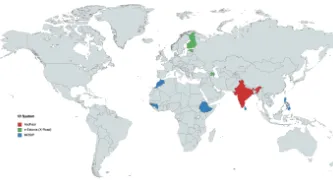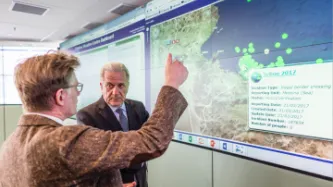Search
Content type: Long Read
IntroductionHealthcare needs privacy. Sometimes this is obvious: patient-doctor confidentiality means that our conversations with healthcare providers must remain private. But there are deeper, more complex, and at times more contested, questions too. For example, over who should have access to what resources and what data, for what reasons, and at what cost.Global and local inequalities in access to both healthcare and digital services adds to this complexity. Everyone has a right both to the…
Content type: Long Read
Across the world facial recognition technologies (FRT) are increasingly being deployed in public and private spaces without adequate laws or regulation to protect individuals from the grave risks they pose to human rights. States rely more and more on this technology for public mass surveillance, enabling an authoritarian omnipresence over people’s activities, movements, and expressions at all times, often without them knowing.Over the past few years we have raised concerns about the rapid…
Content type: Long Read
Governments are increasingly relying on data-intensive systems, both to wage wars and to administer public services. These systems, increasingly provided by the same firms using similar tools, will come to affect our day-to-day lives whether we are in war zones or town squares. This is the era of Militarisation of Tech.The technologies that our governments rely on to deliver services and pursue their objectives are becoming increasingly data-intensive and militarised, which threatens our…
Content type: Long Read
Legal regimes governing situations of armed conflict and peace time have traditionally been clearly defined, leaving little to no doubt as to which regime applies to what situation. However, the Militarisation of Tech challenges this tidy distinction. Instead we are seeing the blurring of lines between actors, technologies, and the areas of deployment, financing, export, and regulations of certain technologies. This growing overlap between on the ground and remote, between war and peace,…
Content type: Long Read
We are at a war footing as we enter an era where the tech world is increasingly defined by conflict. Innovation has never been driven solely by social needs, market forces or the common good. Military imperatives have periodically played central roles in steering the development of new generations of technologies. For instance, the origins of the internet can be traced back to defence research and initiatives like the ARPANET.Now we are witnessing a significant shift: states and corporations…
Content type: Long Read
Governments are rapidly militarising our societies. They are already increasing military spending, undermining civil rights protections, and reducing social protection programmes. Governments already depend on the private sector for delivering public services, through public-private partnerships.Now they are looking to the tech industry to design the next generation battlefield. As new technologies are at the core of this shift, industry is keenly adapting.Big Tech firms are militarising,…
Content type: Long Read
There’s a revolution occurring in how war and conflict are waged. New data-intensive systems are being developed; battlefields are testing grounds for a new generation of tech; and commercial tech infrastructure is now supporting military operations.Data plays a key role in this revolution. Data is used to train and test systems, and the systems are fed data to target operations, communities, and individuals.While intelligence has long informed warfare, now we’re seeing the very same…
Content type: News & Analysis
We’ve been warning for a while now about the risks of AI Assistants. Are these assistants designed for us or to exploit us?The answer to that question hinges on whether the firms building these tools are considering security and privacy from the outset. The initial launches over the last couple of years were not promising.Now with OpenAI’s agent launch, users deserve to know whether these firms are considering these risks and designing their service for people in the real world. The OpenAI…
Content type: Long Read
“Hey [enter AI assistant name here], can you book me a table at the nearest good tapas restaurant next week, and invite everyone from the book club?” Billions of dollars are invested in companies to deliver on this. While this is a dream that their marketing departments want to sell, this is a potential nightmare in the making.Major tech companies have all announced flavours of such assistants: Amazon’s Alexa+, Google’s Gemini inspired by Project Astra, Microsoft’s Copilot AI companion and…
Content type: Long Read
On 13 March 2025, we filed a complaint against the UK government challenging their use of dangerous, disproportionate and intrusive surveillance powers to undermine the privacy and security of people all over the world. Here, we answer some key questions about the case and the recent events that led to this development.Note: This post was last updated on 13 March 2025.What’s the fuss about?A month ago, it was reported that the UK government demanded Apple Inc – maker of the iPhone, iPads, Macs…
Content type: Long Read
What happened?On 19 July 2024, American cybersecurity company CrowdStrike released an update to its CrowdStrike Falcon software that ultimately caused 8.5 million computers running Microsoft Windows to crash. The damage done was both deep and wide: deep because the computers affected were unable to recover without direct user intervention. Wide because a whole range of companies - from airlines to healthcare to media - across a whole range of countries - from Sweden to India to New Zealand -…
Content type: Long Read
IntroductionHarnessing new digital technology to improve people’s health is now commonplace across the world. Countries and international organisations alike are devising digital health strategies and looking to emerging technology to help solve tricky problems within healthcare. At the same time, more and more start-ups and established tech companies are bringing out new, and at times innovative, digital tools aimed at health and wellbeing.
Content type: Long Read
Education is a fundamental human right outlined in the Universal Declaration of Human Rights (Article 26), which states that everyone has the right to education. Schools play a core role in the education of children, but it’s also in schools that children are encouraged to learn to work with others, and to develop their own identities and emotional skills. The education process doesn’t stop there, it continues as children grow and make their way through different higher educational spaces such…
Content type: Long Read
1. What is the issue?Governments and international organisations are developing and accessing databases to pursue a range of vague and ever-expanding aims, from countering terrorism and investigating crimes to border management and migration control.These databases hold personal, including biometric, data of millions if not billions of people, and such data is processed by technologies, including Artificial Intelligence (AI), to surveil, profile, predict future behaviour, and ultimately make…
Content type: Long Read
The fourth edition of PI’s Guide to International Law and Surveillance provides the most hard-hitting past and recent results on international human rights law that reinforce the core human rights principles and standards on surveillance. We hope that it will continue helping researchers, activists, journalists, policymakers, and anyone else working on these issues.The new edition includes, among others, entries on (extra)territorial jurisdiction in surveillance, surveillance of public…
Content type: Long Read
Our world is undergoing a seismic process of increasing digitisation, which sees the proliferation of new technologies and the growing integration of these technologies into public services, which rely more and more on copious amounts of personal data and on automated processes. This phenomenon has a unique impact upon the rights of persons with disabilities. As the era of global digitisation causes societies worldwide to undergo a digital metamorphosis, persons with…
Content type: Long Read
The defense and protection of the environment continues to come at a high cost for activists and human rights defenders. In 2021, the murders of environment and land defenders hit a record high. This year, a report by Global Witness found that more than 1,700 environmental activists have been murdered in the past decade.
While the issue of surveillance of human rights defenders has received attention, evidence of the surveillance of environmental activists keeps mounting, with recent examples…
Content type: News & Analysis
The relationship between privacy and access to abortion care
In 1973, in the state of Texas, it was a criminal offence to “procure or attempt” an abortion except if the purpose was “saving the life of the mother.” This law was enacted in 1854 by the Texas state legislature, and was part of a wave of provisions criminalising access to abortion care that was gaining ground across the U.S in the mid-1800s. It is worth highlighting that these laws were being passed at a time when women in the U.S…
Content type: Explainer
Introduction/Background
Electronic tags have been a key part of criminal justice offender management for over 20 years, being used in the United States since the mid 1980’s and in the UK and some other commonwealth countries since 2003. In 2021 the UK introduced GPS tagging for immigration bail.
The tag is predominantly used to curtail the liberties of individuals. For those on criminal bail its intended use includes managing return into communities while deterring reoffending.
As we explore…
Content type: Long Read
In a roundtable available on YouTube, co-hosted with Garden Court Chambers, Privacy International brought together immigration law practitioners to discuss how they’ve used privacy and data protection law to seek information or redress for their clients.Index:1. UK Border 20252. Super-complaint and judicial review challenge to data sharing3. Mobile phone seizure and extraction4. Freedom of Information Act requestsThe dystopian future: UK Border 2025To set the scene on how the future may look…
Content type: Long Read
Governments around the world are increasingly making registration in national digital ID systems mandatory for populations, justifying its need on a range of issues from facilitating access to services, to national security and fighting against corruption. This is an attempt to create a "foundational identity" for an individual, or "a single source of truth" about who someone is, according to a government agency. These identity systems are run by governments, sometimes by private companies, or…
Content type: News & Analysis
As Amnesty International and Forbidden Stories continue to publish crucial information about the potential targets of NSO Group’s spyware, we know this much already: something needs to be done.
But what exactly needs to be done is less obvious. Even though this is not the first time that the world has learned about major abuses by the surveillance industry (indeed, it’s not even the first time this month), it’s difficult to know what needs to change.
So how can the proliferation and use of…
Content type: News & Analysis
A new industry is offering border agencies around the world access to advanced space-based surveillance capabilities once reserved for the most advanced intelligence agencies. Using satellites able to track signals from satellite phones and other emitters, these companies are then selling access to the data obtained to anyone willing to pay, including UK and EU border agencies.
While such surveillance can and is being used to save lives, it can also be used for illegal ‘pull backs’ in…
Content type: Examples
During the Black Lives Matter protests of summer 2020, US police took advantage of a lack of regulation and new technologies to expand the scope of people and platforms they monitor; details typically emerge through lawsuits, public records disclosures, and stories released by police department PR as crime prevention successes. A report from the Brennan Center for Justice highlights New York Police Department threats to privacy, freedom of expression, and due process and the use of a predator…
Content type: Long Read
The Grand Chamber of the European Court of Human Rights ruled that the UK government’s historical mass interception program violates the rights to privacy and freedom of expression. The Court held that the program “did not contain sufficient “end-to-end” safeguards to provide adequate and effective guarantees against arbitrariness and the risk of abuse.” As a result the Court ruled that UK law "did not meet the “quality of law” requirement and was therefore incapable of keeping the “…
Content type: Long Read
On 25 May 2021, the European Court of Human Rights issued its judgment in Big Brother Watch & Others v. the UK. Below, we answer some of the main questions relating to the case.
After our initial reaction, below we answer some of the main questions relating to the case.
NOTE: This post reflects our initial reaction to the judgment and may be updated.
What’s the ruling all about?
In a nutshell, one of the world’s most important courts, the Grand Chamber of the European Court of Human…
Content type: Examples
Numerous US colleges are forcing students to download location-tracking apps or wear symptom-tracking devices, many of them similar to tracking systems student athletes are often required to install on their phones. Tracking athletes did little to help them gain either an education or a professional career and backfired when they bypassed the system to reclaim some privacy. Tracking the student body at large is likely to follow suit, with dangerous consequences for public health. In addition,…
Content type: Long Read
Now more than ever with a global pandemic happening, our lives are being shaped by our interaction with the digital world. Work meetings on Zoom followed by Skype with family before a quick run with your favourite running app and a Google search for your next meal: technologies and services offer us a lot and greatly improve our daily lives. But what's the real cost of these tools we rely on so much?
A lot of these companies, especially those offering free services, collect data about you. It…
Content type: Examples
Article extract:
"A meaty first report by the UK parliamentary committee that’s been running an inquiry into online disinformation since fall 2017, including scrutinizing how people’s personal information was harvested from social media services like Facebook and used for voter profiling and the targeting of campaign ads — and whose chair, Damian Collins — is a member of the UK’s governing Conservative Party, contains one curious omission.
Among the many issues the report raises are privacy…
Content type: Examples
Article extract:
"Ireland's two largest anti-abortion campaigns are facing questions over privacy after a BuzzFeed News analysis found that personal user data gathered by both of their apps can be shared with an international network of conservative and religious groups that includes the US National Rifle Association.
The Save the 8th campaign and the LoveBoth Project are at the forefront of the campaign to prevent the repeal of the Eighth Amendment of Ireland's constitution – which makes…




